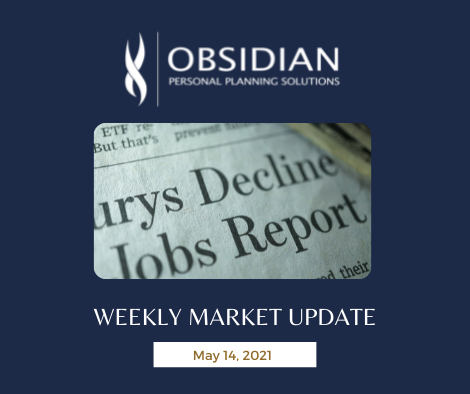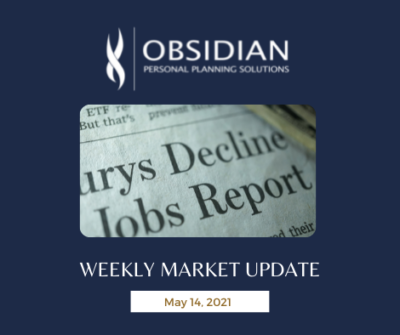
|
Hello friends! In a previous Weekly Update (04.23.21), we outlined four COVID-related issues contributing to financial market volatility. This week, we want to give you an overview of the unexpected jobs report. And highlight an anonymous individual who is spreading joy and generosity to unsuspecting restaurant workers. Surprise! Some surprises are great—a call from an old friend, finding a great wine or receiving a fantastic tip. (More about that in a moment.) Other surprises like the one the U.S. Department of Labor’s April 2021 Employment Situation Report provided the financial markets earlier this month aren’t so great. April 2021 Job Numbers Simply put, the financial markets expected the number of jobs recovered in April 2021 to keep pace with the March number (916,000 jobs recovered) and that the unemployment rate would continue to fall as the country emerged from COVID-induced idleness. Instead, in April:
These numbers fell far short of expectations. In this newsletter, we look at the factors that have slowed the national unemployment rate and our rate of recovery. The Benefits and Flaws of the Federal Unemployment Program These benefits performed as intended. They eased the hardship faced by millions of workers whose jobs disappeared due to COVID-19 and supported the lifeblood of our economy. The problems lie in the broad-brush nature of the program.
The Unintended Consequences Today, many of our business-owner clients tell us that they are losing a battle they didn’t expect to fight: hiring workers. Like business owners across the U.S., they wonder whether current U.I. benefits are an incentive for some workers to stay home. We found that analysts at the National Bureau of Economic Research estimate that between April and July of 2020, when weekly benefits were set at $600 per week, 76% of eligible workers qualified for benefits that exceeded their lost wages. Why Are Workers Staying Home? Benefits that exceed wages do not mean that all 76% are staying home because they’d rather collect benefits than work. In fact, a 2020 Pew Research Survey found that 64% of workers would feel uncomfortable if their workplaces were to reopen in the month following the survey. In addition, the U.S. Census Bureau reports that in March and April of 2020, some 3.5 million mothers living with school-age children left active work for paid or unpaid leave. What’s Being Done to Get Individuals Back Into the Workforce? Our business-owner clients face an enormous hiring challenge that state governments are taking steps to address. For example, Montana will launch a return-to-work program that will pay $1,200 to unemployed workers who take (and retain) jobs. In addition, on April 27 of this year, Idaho’s two senators introduced a Back to Work Bonus Act designed to “counteract enhanced federal unemployment benefits that discourage workers from returning to jobs.” Another Kind of Bonus In January and February, Colorado’s COVID Bandit (so named for his signature on the credit card receipt) left huge tips to restaurant workers in Denver ($6800) and cafe workers in Estes Park ($1400). The anonymous Bandit struck again at a Boulder restaurant in May, leaving a $4600 tip with instructions to share the tip with every employee. This bonus worked precisely as intended: Every restaurant worker hard-hit by the pandemic expressed both gratitude and a desire to pay it forward. Past performance is no guarantee of future results. Securities offered through Triad Advisors, member FINRA/SIPC. Advisory Services offered through Obsidian Personal Planning Solutions, LLC. Obsidian Personal Planning Solutions, LLC, and Obsidian Personal Planning Solutions, Inc, are not affiliated with Triad Advisors. |

